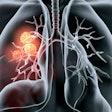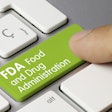Dear LabPulse Member,
Testing has been front and center in discussions about how to manage the novel coronavirus and how technologies could be deployed to allow for some badly needed reopening of economies.
As of April 13, more than 1.7 million cases of COVID-19 had been reported worldwide, including more than 111,000 deaths, according to the World Health Organization. The U.S. passed 520,000 cases and 31,000 deaths.
Reports about shortcomings in U.S. testing capacity have been widely publicized. Hospitals have been facing severe shortages of testing supplies and extended waiting times for testing results, according to a new report from the U.S. Department of Health and Human Services Office of Inspector General. The turnaround time for virus testing would normally be 24 hours but has been taking seven days or more during the pandemic.
In an opinion piece for LabPulse.com, molecular diagnostics and regulatory expert Rahul Sharma, PhD, made the case for involving academic research labs to expand testing capacity at a time of global health crisis.
Molecular diagnostics have been at the core of the U.S. testing strategy and offer high sensitivity, though some researchers have called attention to the potential for false negatives with reverse transcription polymerase chain reaction (RT-PCR) tests. This could have major implications for the public and health professionals alike as capacity ramps up.
Pressed to address the lack of testing capacity during White House coronavirus press briefings, officials have accentuated the positive. So far, more than 2.2 million tests have been completed in the U.S. and 100,000 more are being done each day, officials said. During an April 9 press briefing, global health expert and response coordinator Dr. Deborah Birx acknowledged that not all machines are running at full capacity, but she commented that molecular testing is very complicated and suggested that expectations may need to be adjusted. Birx also noted that testing has been focused on the hot spots of the pandemic, such as New York, Louisiana, and New Jersey.
Meanwhile, an antibody test that works with a finger-prick blood draw that is "easy and deployable" is being developed right now, though the government doesn't want to make promises on the arrival date, she said.
Agencies are in the process of validating antibody tests. In a recent statement, the U.S. Food and Drug Administration (FDA) noted that it has granted only one emergency use authorization for a serology test, though more than 70 developers have notified the agency of plans to offer one. The agency plans to take action against firms that falsely claim that their serological tests are FDA-approved.
With an end to lockdowns up in the air and high unmet need for predicting outcomes -- including diagnosis and hospital readmission -- the application of artificial intelligence to in vitro diagnostics is gaining ground. Kalorama Information publisher Bruce Carlson reviewed some highlights for diagnostics and surveillance in a report for LabPulse.com.



















